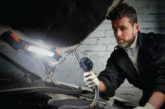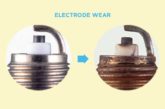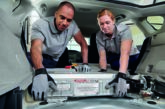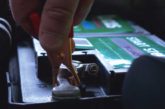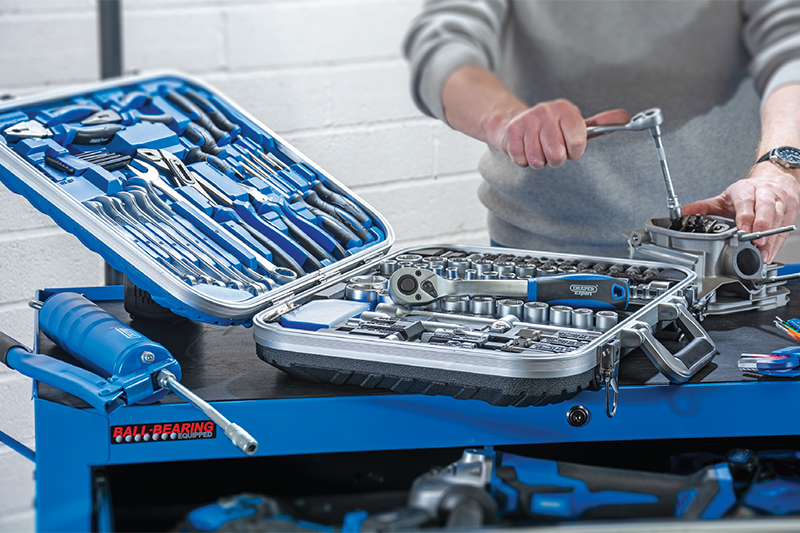
Tools and equipment manufacturer Draper is calling on garages to treat their tools with the respect they deserve.
In the automotive trade, your tools are investments that can directly impact the quality, efficiency and safety of every job undertaken. Yet in busy workshops across the country, the proper maintenance and careful selection of the right tools can often take a back seat to the daily rush of service and repair work. Automotive tool specialist Draper is here to offer its advice on taking the best care of your tools.
Taking proper care of your tools can sometimes seem like an extra job for a mechanic’s already hectic workload – but the truth remains that a well-maintained toolkit is about more than simply preserving expensive equipment. It’s about maintaining professional standards and ensuring consistent, reliable results for every customer who entrusts their vehicle to you.
The old adage ‘a poor workman blames his tools’ might be familiar, but in modern automotive repair, even the most skilled technician can be hampered by poorly maintained or inappropriately used equipment. From precision diagnostic tools to basic spanners, each instrument in a mechanic’s kit requires specific care and correct application. The initial investment in quality tools, while sometimes substantial, pales in comparison to the potential costs of repeated replacements, damaged vehicle components, or worse – workplace injuries resulting from tool failure.
Hand tools
When you’re using your hand tools every day, it’s essential to invest in the best quality. So make sure you’re choosing those made for the trade, such as Draper’s Expert range. This is a range designed to exceed the industry’s strict compliance standards, so they’ll withstand heavy-duty use.
Keep an eye on the condition of your hand tools. Always inspect your tools for wear and tear. Worn spanners can slip off nuts and bolts, potentially stripping them or damaging the surrounding area. This not only increases repair time but also raises the risk of injury. Worn spanners should always be replaced, but a ratchet’s mechanism can simply be replaced, giving it a new lease of life.
Torque wrenches are indispensable, but regular calibration is essential to maintain accuracy and prevent any issues which could lead to overtightening. After use, always wind them back to their minimum setting as this maintains their accuracy.
Select the right socket for the job. For example, never use standard sockets with an impact gun – use impact-rated sockets designed to withstand the higher forces.
Remember: ‘Buy cheap, buy twice’ doesn’t always mean spending a fortune or choosing the most expensive brands. But you should choose wisely from reputable sellers with brands you trust. Conduct a little research before making online purchases to avoid lower quality or even fake tools. Look out for the brand being embossed on the tool and packaging that clearly states compliance with industry standards.
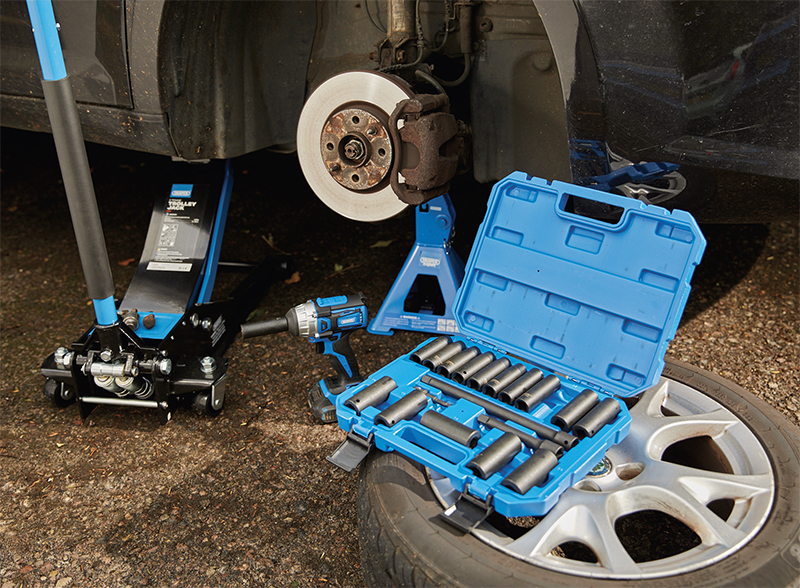
Garage equipment
Trolley jacks are essential, but select the appropriate model based on the vehicle’s weight and required clearance. Always inspect the jack before use and adhere to the manufacturer’s maintenance guidelines. Regular greasing is necessary for optimal operation.
Use a jack pad to protect the vehicle’s contact point and prevent damage. Never work under a vehicle supported solely by a jack – always use axle stands, primarily for safety but also to ensure you don’t damage your jack. Avoid using the jack on uneven ground.
One of the most common automotive misuse examples we see, is using something other than the correct breaker bar to apply extra force to a corroded fixing. This approach invariably damages ratchets and sockets, increasing the risk of slipping. Never slip a pole over the handle to extend it! Always use the correct tool for the job – it saves time and money in the long run.
Power tools
Power tools require proper maintenance to perform at their best. For cordless models, make sure you keep them regularly charged, but don’t leave them on charge permanently, remove from the charger once full to avoid over charging. You should also try to avoid letting the battery go completely flat before charging. As a professional, you ideally want to opt for power tools with a brushless motor, while this will cost more, it will improve the performance, longevity and durability of the tool.
Don’t overwork your power tools, if a tool seems like it’s getting too hot from continuous use, give it a break. As with garage equipment, make sure you follow the manufacturers guidelines for maintenance, some tools may require lubrication for example.
Tool storage is especially important to consider when it comes to power tools, you want to avoid extremes of temperature or any kind of damp, moist environment. A tool chest is a great place to store your tools when not in use, as this helps avoid dust and debris. Draper’s Bunker collection of tool storage solutions makes a great, versatile option for organising your workshop.
Cleaning
A regular cleaning regime for your tools, whether hand or power, is one of the best and simplest ways to ensure they’re well maintained. It may seem like extra work, but it really does help avoid premature wear and tear and ultimately tool failure.
Ensure that your tools are free from oil, grease and dust once you finish a job – don’t put it off as this only makes the cleaning job harder. You can use specialist wipes for this, such as Draper’s Hard Graft range, which can remove everything from sealants to oil. These kinds of wipes are often antibacterial too, helping protect you as well as your tools. Always ensure your tools are dry before you store them too.
Some garages may want to consider investing in an ultrasonic cleaning tank. Not only are ultrasonic tanks great for cleaning parts, but they can be very effective at removing dirt from some tools, leaving them sparkling clean again (just make sure before you put anything in an ultrasonic cleaning tank, that you’ve checked it’s suitable).
Investing time in tool maintenance isn’t just about protecting your equipment, it’s about protecting your reputation and your future. By establishing proper tool care routines, making informed purchasing decisions, and using equipment correctly, you’re not just maintaining tools – you’re maintaining high standards in the workshop.

